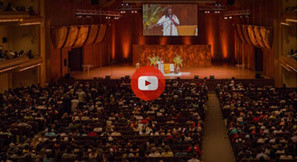
The 3 Types of Karma
No event or action can happen without a cause. There needs to be a cause for every result. So every effect has a cause and this cause is Karma. Many people think Karma is fate. Karma is not just fate. The literal meaning of Karma is “action” and action has got 3 forms:
- The action that is latent (suksma), which is going to become an action. This is called Sanchita Karma.
- The action itself (sthula). This is called Prarabdha Karma.
- The consequence of the present action (in the form of an impression) on the future. This is called Agami Karma. The impact or effect of an action is also Karma, because every effect becomes a cause in itself.
You are reading – this is an action that is manifesting now. This is Prarabdha Karma.
You wanted to read this knowledge several hours ago, which made you come to this page. The thought of wanting to read this knowledge in the future is called Sanchita Karma.
After reading this knowledge, you may remember some things and you may totally forget some things. The things that you remember may propel another action in the future, which is Agami Karma.
So karma means: The present action that you are doing (Prarabdha) is creating an impression in your mind (Agami), which will draw similar situations in the future (Sanchita).
The Cycle of Cause and Effect
I will give you a simple example. Suppose you have been drinking coffee every morning, and one day you don't drink coffee and you get a headache – this is coffee Karma. It is because you have had coffee in the past, the impression of it in the mind creates the craving for coffee.
When you are making coffee and drinking it, that is Karma. After you have had coffee, the impression of it creates the craving for it in the future; this is future impressionable Karma. So, the past impressions in the mind is one Karma, the present action you are doing is another Karma, and the impression of the present action is another Karma.
An impression in the mind is latent action – it is still action, but it is latent. Just like a memory. One memory is functional now, and other memories are latent within us.
For example, you know the mathematical table, but right now you are not memorizing it. You have already memorized it, and when you need it, it pops up. Are you getting what I am saying? So certain strong impressions remain in the mind and they form the future Karma.
Until the impression of your previously completed Karma is on your mind, that Karma manages to exist. You are freed from Karma once the impression is erased.

Subscribe
If you enjoyed reading this content and would like to receive a notification on our future updates, you can subscribe here.
You can also write to us on webteam.wisdom@artofliving.org for any questions or comments.

What is Karma?
There are billions and billions of living creatures and so many kinds of feelings arise within each of them. All these feelings propel or cause some action. That feeling is called Karma, and the (resultant) action is also called Karma.
What is Karma and how does it work? In this article Gurudev Sri Sri Ravi Shankar explains the profound phenomenon of Karma.



































